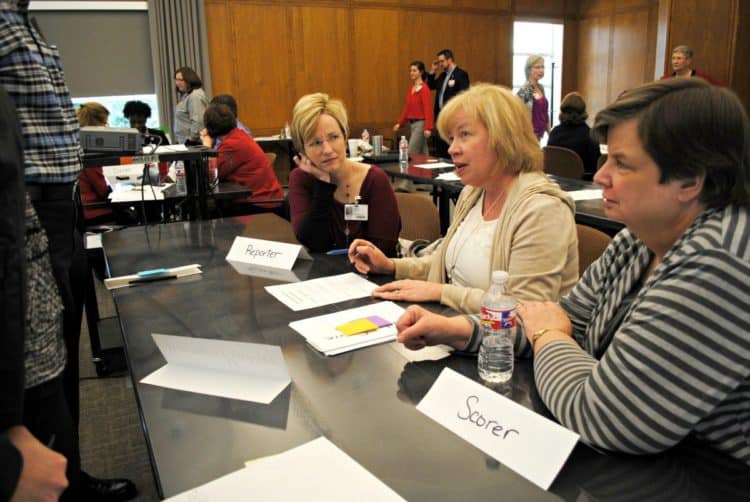TRI Embraces ‘Lean’ Concepts to Improve Efficiency

At UAMS, translational research starts with TRI. Inherent in the term translational is TRI’s duty to provide researchers efficient access to an array of research services.

Two years ago, TRI introduced TRIservices@uams.edu, an email address for researchers to send requests for UAMS’ research services. This services portal system was streamlined in 2015 with the addition of a Request Services form, available on TRI’s website, TRI.uams.edu. The services portal was further streamlined just this month with a new form and increased automation.
Sparking the ideas for these new processes was TRI’s participation in trainings offered by the UAMS Performance Improvement Department. A condensed version of the Introduction to Lean training was provided to the TRI Leadership Council and program managers on Feb. 29. The program teaches methods for eliminating waste and promoting efficiency by identifying bottlenecks in processes, removing non-value added steps and adjusting processes to improve flow of services.
“The TRI services portal is a great example of how TRI is applying Lean on behalf of researchers,” said Beatrice Boateng, Ph.D., who leads TRI’s Evaluation and Continuous Quality Improvement program.

Prior to the services portal update this month, all requests went to Amy Jo Jenkins, a TRI project leader, who manually entered the requests into a database and routed it to the appropriate person to perform the service requested.
TRI utilized Lean principles to review the research services request processes and eliminated waste to improve the response time. “Now it is all automated,” Boateng said. “When a request comes in, it will automatically route to the person or service area. It frees up Amy Jo to focus on other issues.”
The training was familiar but still helpful to Department of Biomedical Informatics Chair Fred Prior, Ph.D., who brings both industry and academic backgrounds to his role. He envisions applying the principles of Lean to improve response times for research queries against UAMS’ research information repositories.
“I would like to make that happen as an example of how to apply it in research,” he said.

The Lean training also including aspects of change management. Laura Hutchins, M.D., who oversees TRI’s Clinical Trial Innovation Unit and serves as the liaison for the CTSA consortium’s clinical trial initiatives, referenced a key tenet of Lean – the value of teamwork and inclusiveness.
“Teamwork is important. Everyone’s input is valuable,” Hutchins said. “Small changes may result in large improvements in outcome.”
Boateng noted that Introduction to Lean trainings typically last a week, while the Leadership Council’s training was condensed and tailored for that group.
“I think the introduction we received was just enough to get us (TRI) thinking about what to change to make us more efficient,” she said.
